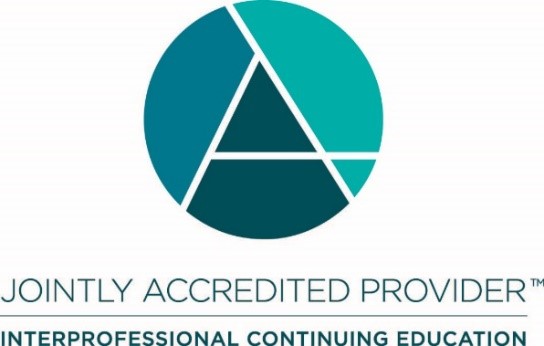Optimal Management of Venous Thromboembolism in Patients with Cancer
Surveys suggest that patient and clinician education on cancer-associated VTE and safe use of DOACs is lacking, despite the fact that VTE is a major contributor to mortality among cancer patients. There is concern that the DOACs may be over-used or unsafely used in cancer patients because clinicians are unaware of all the factors that could influence the efficacy and safety of DOACs, such as advanced age, weight/body-mass index (BMI), gender, concomitant medications, kidney or liver function, chemotherapy-associated nausea/vomiting and surgical resection of the proximal small bowel. The prospective randomized trials that tested DOACs for treating VTE in patients with cancer included a range of cancer types, but there is concern that the patient selection criteria may have excluded a significant proportion of patients with cancer who need therapeutic anticoagulation in real world clinical settings. Secondary analyses of these trials and other retrospective analyses suggest that the risk of bleeding while on DOACs is much higher for certain cancer types.
Target Audience
This educational program is designed to meet the educational needs of physicians, nurses, physician assistants, pharmacists, and other health care professionals who manage patients with cancer.
Learning Objectives
Following this program, participants should be able to:
- Describe clinical situations where therapeutic anticoagulation would be an appropriate option for treatment of cancer-associated venous thromboembolism (VTE)
- List factors to consider (including contraindications) when selecting among the recommended options for therapeutic VTE anticoagulation in patients with cancer
- Describe consideration for management of patients with cancer-associate VTE in the event of therapeutic anticoagulation failure
Michael B. Streiff, MD
The Sidney Kimmel Comprehensive Cancer Center at Johns Hopkins
NCCN Continuing Education Disclosure Policy
It is the policy of NCCN that every 12 months, all faculty, moderators, activity planners and all internal planning staff participating in NCCN continuing education activities are expected to disclose any financial relationships with a commercial interest. In addition, all faculty presentations have been reviewed to ensure education is fair and balanced and that clinical content presented supports safe, effective patient care. Individuals who do not disclose relevant financial relationships will be disqualified from involvement in the CE activity as a content developer, planner, or presenter.
Definitions
NCCN continuing education considers financial relationships to create a conflict of interest when an individual has both a financial relationship with a commercial interest and the opportunity to affect continuing education content about the products or services of a commercial interest with which he/she has a financial relationship.
NCCN continuing education considers relevant financial relationships as financial relationships in any amount occurring within the past 12 months that create a conflict of interest. NCCN does not set a minimal dollar amount for relationships to be significant. Inherent in any amount is the incentive to maintain or increase the value of the relationship.
Faculty Disclaimers
All faculty for this continuing education activity are competent in the subject matter and qualified by experience, training, and/or preparation for the tasks and methods of delivery.
Faculty presentations may include discussion of off-label use. Faculty will disclose that the use in question is not currently approved by the FDA per the product labeling.
Faculty Disclosures
The faculty listed below discloses the following relevant financial relationships:
Michael B. Streiff, MD
Bayer HealthCare: Honoraria
Bristol-Myers Squibb Company: Scientific Advisor; Consulting Fee
Dispersol Technologies: Consulting Fee
Janssen Pharmaceutica Products, LP: Scientific Advisor; Consulting Fee
Novo Nordisk A/S: Grant/Research Support
Pfizer Inc.: Consulting Fee; Honoraria
sanofi-aventis U.S.: Grant/Research Support
NCCN Staff Disclosures
The NCCN Leadership listed below discloses no relevant financial relationships:
Wui-Jin Koh, MD
The NCCN Activity Planning staff listed below discloses no relevant financial relationships:
Mike Abrams; Melissa Esplen; Mark A. Geisler; Kristina M. Gregory, RN, MSN, OCN; Kristin Kline Hasson; Rose Joyce; Karen Kanefield; Lisa Perfidio, MS; Shannon Ryan, CMP; Kathy Ann Smith, CHCP; Sarah Weinstein
The NCCN Clinical staff listed below discloses no relevant financial relationships:
Anita M. Engh, PhD; Liz Hollinger, RN, BSN

In support of improving patient care, National Comprehensive Cancer Network (NCCN) is jointly accredited by the Accreditation Council for Continuing Medical Education (ACCME), the Accreditation Council for Pharmacy Education (ACPE), and the American Nurses Credentialing Center (ANCC), to provide continuing education for the healthcare team.
Physicians
NCCN designates this live activity for a maximum of 0.75 AMA PRA Category 1 Credit™. Physicians should claim only the credit commensurate with the extent of their participation in the activity.
Nurses
NCCN designates this educational activity for a maximum of 0.75 contact hour.
Pharmacists
NCCN designates this application-based continuing education activity for 0.75 contact hour (0.075 CEUs) of continuing education credit. UAN: JA4008196-0000-21-044-H01-P
Physician Assistants
NCCN has been authorized by the American Academy of PAs (AAPA) to award AAPA Category 1 CME credit for activities planned in accordance with AAPA CME Criteria. This activity is designated for 0.75 AAPA Category 1 CME credit. Approval is valid until March 1, 2022. PAs should only claim credit commensurate with the extent of their participation.
Available Credit
- 0.75 AAPA Category 1 CME credit
- 0.75 ACPE contact hours
- 0.75 AMA PRA Category 1 Credit™
- 0.75 ANCC contact hours
- 0.75 Participation
Required Hardware/software
To complete this activity, users will need:
- A device with an Internet connection and sound playback capability
- One of the two latest versions of Google Chrome, Mozilla Firefox, or Safari
- Internet Explorer is no longer supported
- Adobe Reader or other PDF reader software for certificate viewing/printing

 Facebook
Facebook X
X LinkedIn
LinkedIn Forward
Forward